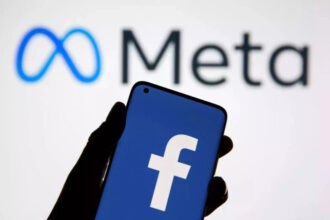Launching a startup in Nigeria is no small feat. You’ve got the idea, the hustle, and maybe even the MVP. But how do you convince people to trust your brand — especially when you’re new?
The answer: social proof.
In a world where people Google everything and read reviews before buying, social proof is one of the most powerful tools a startup can use to build trust, boost credibility, and attract customers — even with zero big-name backing.
Let’s break down how you can use testimonials, media mentions, and user-generated content (UGC) to win trust fast — no matter how young your business is.
What is Social Proof?
Social proof is the idea that people are more likely to take action if they see others doing the same. It’s why:
- You check reviews before ordering from Jumia.
- You click “follow” on pages with a high number of engaged fans.
- You feel more confident when someone recommends a product they’ve used.
For Nigerian startups, social proof shows potential customers that “others have tried and trusted us” — and that’s gold in a skeptical market.
1. Start with Testimonials (Even One Is Powerful)
If you’ve ever served one client, sold one product, or offered one demo — get a testimonial.
Here’s how to do it:
- Ask early users/customers for short feedback via WhatsApp, Google Forms, or email.
- Focus on what problem your product solved for them.
- Keep it real — authentic over polished.
Example:
“Before using this app, I spent hours managing my inventory. Now it’s all automated. Highly recommended!” – Aisha, Small Business Owner in Abuja.
Bonus SEO Tip: Add testimonials to your homepage or landing page with keywords like “trusted by Nigerian SMEs” or “customer success stories.”
2. Use Media Mentions — Even Local Blogs Count
You don’t need to be on CNN to build authority.
Local publications, tech blogs, or radio interviews can give your brand massive social proof — especially when shared strategically.
How to get featured:
- Pitch your startup story to blogs like Techpoint Africa, Nairametrics, Bintu’s Art and Everything or local campus platforms.
- Highlight your innovation, impact, or founder journey.
- Offer data, visuals, or user success stories in your press pitch.
Once featured:
- Add the logos of media outlets to your website (“As Featured In…”).
- Share the article link across social media and newsletters.
- Use quotes in your pitch deck or investor materials.
3. Leverage User-Generated Content (UGC)
Nigerians love to post. Encourage your customers to create content about your brand — whether it’s a selfie with your product, an unboxing video, or a short testimonial.
How to encourage UGC:
- Create a hashtag and reward users who tag your brand.
- Run a “show us how you use [your product]” challenge.
- Repost customer stories and shout them out.
Why it works:
People believe people — especially fellow Nigerians. Seeing someone “like me” using a product makes it more trustworthy than any ad.
4. Highlight Numbers and Engagement
Even if you’re new, some numbers tell a story:
- “Over 500 downloads in 3 months”
- “Trusted by 100+ Lagos vendors”
- “Featured on Channels TV”
These micro-milestones create perception. Don’t be shy — put those numbers in your bio, emails, and website.
5. Collaborate with Micro-Influencers
Influencer marketing isn’t just for big brands. Micro-influencers in Nigeria (1k–10k followers) often have tight-knit, engaged audiences.
Look for those in your niche — lifestyle, tech, education, fashion — and offer free products, affiliate deals, or cash to review your brand.
Even a simple tweet or Instagram Story can act as social proof when shared smartly.






